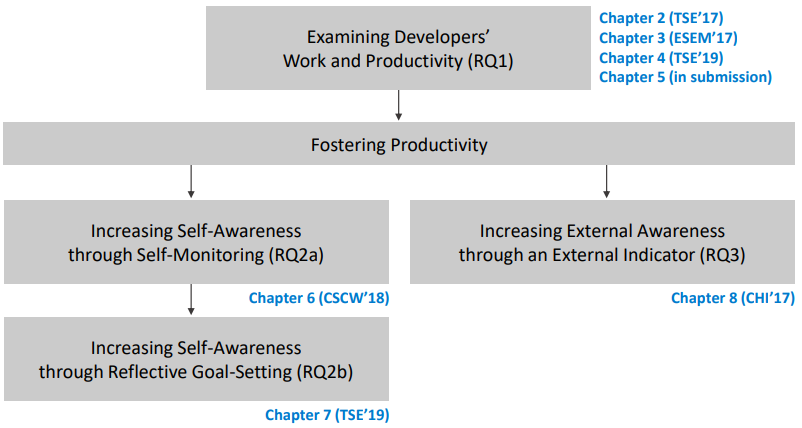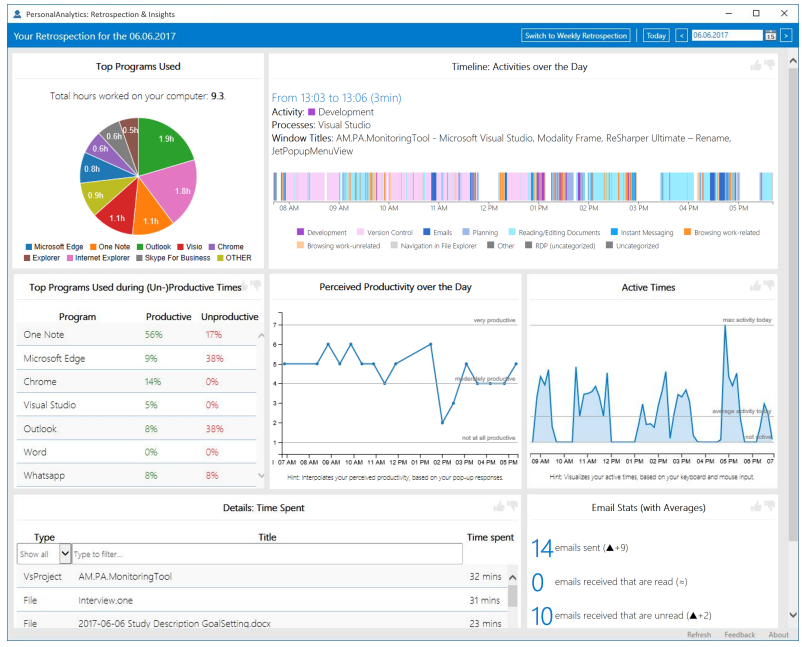Dissertation Fostering Software Developer Productivity through Awareness Increase and Goal-Setting.
Abstract:
s strive to enhance the productivity of their developers. All too often, efforts aimed at improving developer productivity are undertaken without knowledge about how developers spend their time at work and how it influences their own productivity. In our research, we focus on two aspects for improving developers’ productivity: better understanding developer productivity and using these findings to foster productivity at work. To better understand developer productivity, we took a bottom-up approach by investigating developers’ perceptions of productivity in the field, and by examining the individual differences in each developer’s work. We found that developers spend their time on a wide variety of activities and tasks that they regularly switch between, resulting in highly fragmented work. Extending our understanding of developers’ work and the factors that impact their productivity then allowed us to develop models of developers’ work and productivity, and build approaches that support developers with productive behavior changes. To support the identification of self-improvement opportunities that motivate productive behavior changes, we studied how we can increase developers’ awareness about work and productivity by combining our models with three persuasive strategies: self-monitoring, self-reflection, and an external indicator. Based on successful applications in the health and physical activity domain and from examining developers’ expectations, we developed PersonalAnalytics, a workplace self-monitoring tool that collects a broad variety of computer interaction data and summarizes the data in a daily and weekly retrospection. A multi-week field-study showed that PersonalAnalytics offered meaningful insights to 82% of the participants, but the insights were not actionable enough to motivate behavior change for 41% of our participants. In a follow-up study, we found that continuous and purposeful self-reflection can motivate productive self-improvements in the workplace, since 83% of our participants stated that it supported the identification of goals and actionable strategies, and 80% reported productivity increasing behavior changes. We further studied how we can increase developers’ awareness about their co-workers’ availability for interruptions, by sensing and externally indicating interruptibility to developers based on their computer interaction. Our large-scale field study with the FlowLight showed that we can effectively reduce 46% of external interruptions, participants felt more productive, and 86% of them remained active users even after the two-month study period ended. Overall, our research showed that we can successfully foster productivity at developers’ work, by increasing their awareness about productive and unproductive work habits, and by encouraging work habit improvements based on the gained insights. In addition, our research can be extended and opens new opportunities to foster productive work for development teams.




